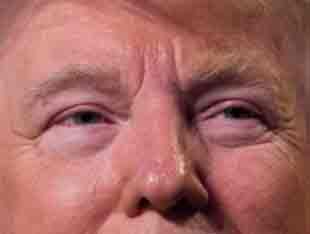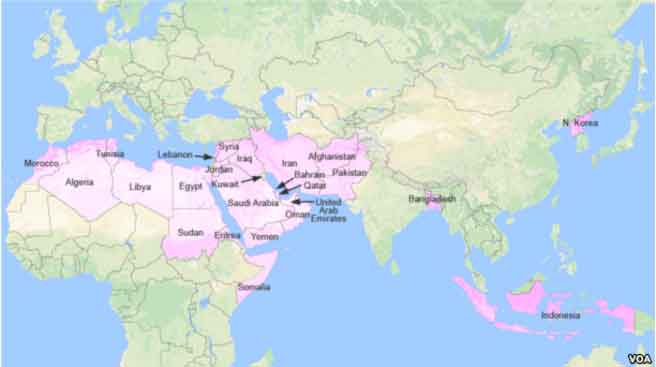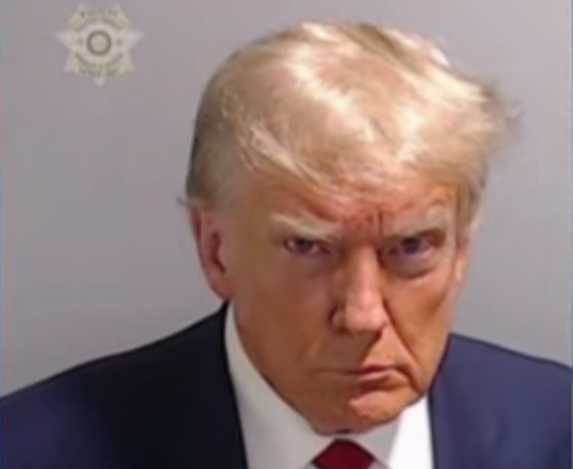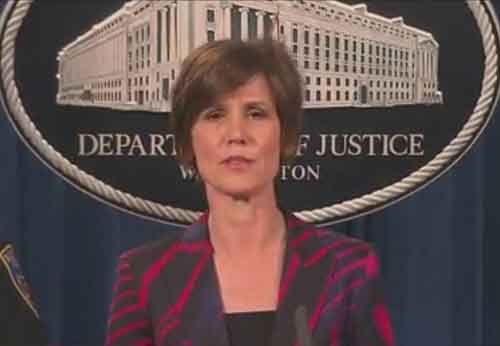However, the head of the Council on American-Islamic Relations, Lena Masri, on Monday called the ban a “Muslim exclusion order” and said her organization was filing two lawsuits challenging the executive orders.
The ban was initially described as blocking green card holders from Iran and the six other Muslim majority nations from reentering U.S. territory, but the Trump administration has since sought to clarify the directive, saying green card holders and non-citizen visa holders will no longer be automatically blocked.
Top lawmakers bristle, call for reversal
Senate Democratic Minority Leader Chuck Schumer continued to attack the travel restrictions Monday, saying the ban should be reversed immediately “because it is un-American.”
On the floor of the Senate, he warned colleagues that Islamic State extremists stand to gain the most from the travel ban, saying they “want nothing more than to paint the United States as a country at war with Islam.” He also reminded his audience that America was founded “by the descendants of asylum seekers,” and that the country has been “constantly invigorated by immigrants.”
Senior Republican Senators John McCain and Lindsey Graham, both members of the Senate Armed Services Committee, criticized Trump’s order Sunday, saying the confusion at airports showed the measure was “not properly vetted.”
Trump responded to McCain and Graham on Twitter, calling them “weak on immigration” and saying they should be focused on Islamic State, illegal immigration and border security.
Nihad Awad, executive director of the Council on American-Islamic Relations, also blasted the travel ban.
In comments to VOA’s Urdu service, he said Trump “did not convince any of us that he has sound legal or national security concerns. For example, the Syrian refugees are subjected to at least two years of scrutiny and extreme vetting already, and once they come here they are safe, they are vetted. There is no terrorist attack that happened at the hands of a Syrian refugee, or any refugee, that we know,” Awad said. “So for him to base all his executive order on [that] false notion is un-American, unethical.”
Confusion reigns at airports
The ban’s implementation led to a weekend of confusion, particularly at the nation’s airports, where in some cases people holding green cards as permanent legal residents were detained for extra questioning before being allowed entry.
Homeland Security Secretary John Kelly issued a statement Sunday seeking to clarify the policy, saying he deems “the entry of lawful permanent residents to be in the national interest.”
Separately Monday, State Department employees and U.S. diplomats opposed to Trump’s order circulated a “dissent channel memo” that said the administration’s move “will not achieve its aims and will likely be counterproductive.”[xyz-ihs snippet=”Adsense-responsive”]The State Department says it is aware of the memo. The Dissent Channel is a longstanding official vehicle for State Department employees to convey alternative views and perspectives on policy issues.
Right to revoke visas
In a separate statement Sunday, the Department of Homeland Security said the government retains its right to revoke visas at any time if necessary for national security. That followed an emergency order by a federal court in New York temporarily barring the deportation of people who arrive at U.S. airports with a valid visa or an approved refugee application.
Judge Ann Donnelly wrote, “There is imminent danger that, absent the stay of removal, there will be substantial and irreparable injury to refugees, visa-holders, and other individuals from nations” who are subject to the president’s order.
Trump has repeatedly called for stricter screening of refugees, and the senior administration official who briefed reporters Sunday described the previous system as “woefully inadequate.”
State Department correspondents Steve Herman and Nike Ching, and reporters Mohamad Olad, James Butty and Saqib Islam contributed to this report
Source: VOA
Pages: 1 2








